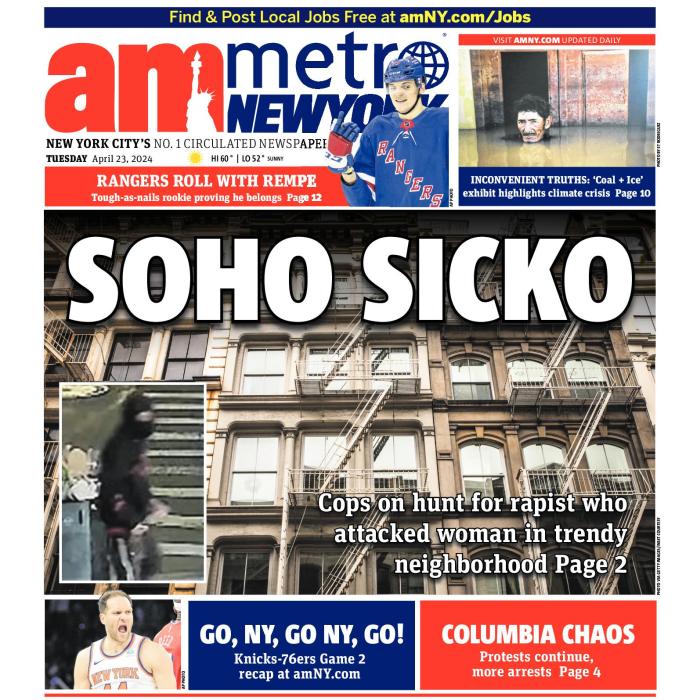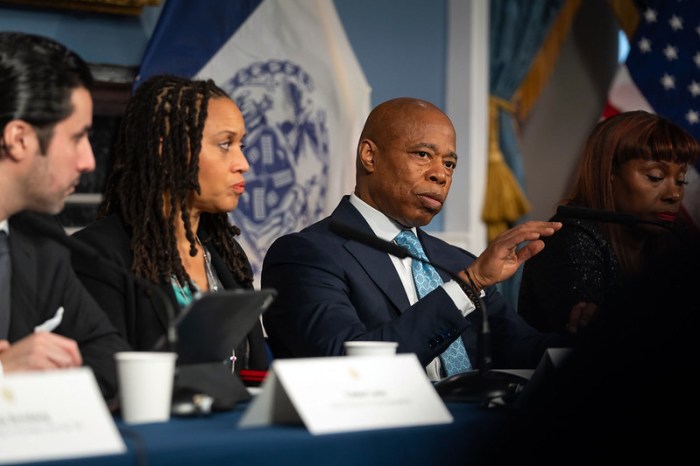
The NYPD trial of officer Daniel Pantaleo renewed attention on the tragic circumstances regarding the 2014 death of Eric Garner. A widely seen video of the incident shows Pantaleo using an NYPD-banned chokehold that contributed to Garner’s death.
Whatever the outcome of the proceeding — verdicts can take weeks — we have enough information about this case to reach a troubling judgment. As egregious as the incident and the city’s lacking response afterward, they’re not aberrational, but emblematic of severe problems with NYPD policing.
The attempted arrest of Garner is a harsh example of the NYPD’s broken-windows policing gone wrong. This tactic entails police targeting poor communities of color, arresting and ticketing black and brown New Yorkers for infractions virtually decriminalized in white areas. For example, for the first three months of this year, state figures show that 95 percent of NYPD pot-possession arrests involved persons of color, this despite research showing that white people use and sell weed in equal or greater proportions than African-Americans and Latinos.
Garner’s death also exposes the damaging effect of the NYPD quota system. Several officers who have spoken confidentially with the Police Reform Organizing Project, a nonprofit advocacy group, said the cops in the Garner case were very likely feeling pressed by a quota system to “make their [arrest] numbers.” Plainclothes officers, like Pantaleo, face the difficult challenge of having to make four monthly felony arrests to keep elite assignments.
Mayor Bill de Blasio has the power to suspend without pay officers who abuse their authority. But he has shamelessly punted on this matter out of political considerations, his fear of appearing soft on crime and of the might of the Police Benevolent Association, the officers’ union whose leadership delights in lashing politicians who dare to criticize police misconduct.
“It stops today” were among Garner’s last words, spoken as officers approached and grabbed him. “It” hasn’t, neither the egregious acts of brutality or the daily harm inflicted by broken-windows policing.
Nearly five years later, the record shows that politicians in power will not do the right thing. It is up to us, the public and reform advocates, to press for justice not only for Garner, but for all New Yorkers enduring the brunt of biased policing.
Robert Gangi, a former mayoral candidate, is director of the Police Reform Organizing Project, an advocacy group.

















